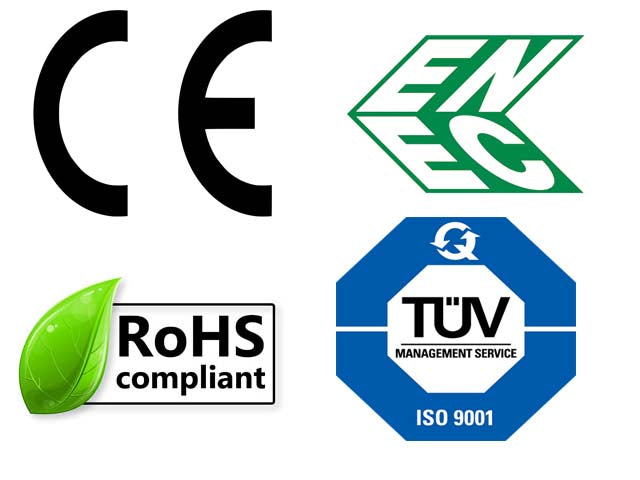
Understanding Product Certifications: TUV, ENEC, CB, CE and RoHS
Share
TUV (Technischer Überwachungsverein)
The TUV certification comes from Germany and stands for "Technical Inspection Society". TÜV provides inspections and certifications in various sectors such as automotive, industry, energy and medical devices. A TUV certified product indicates that it has been tested and meets international safety and quality standards.
ENEC (European Norms Electrical Certification)
ENEC certification is a European marking that shows that an electrical product complies with European safety standards. Products with ENEC certification have been tested by accredited laboratories and ensure the safety of consumers in the European market.
CB (Certification Body Scheme)
The CB Scheme is an international certification scheme that facilitates global trade in electronic products. It is managed by IECEE and allows mutual recognition of test and certification results between participating countries. This means that a product certified in one country can be accepted in others without additional testing.
CE (European Conformity)
The CE mark is necessary for placing products on the European market. Indicates that the product complies with the safety, health and environmental requirements of the European Union. The CE mark covers a wide range of products, from electronic devices to toys and medical tools.
RoHS (Restriction of Hazardous Substances)
The RoHS directive restricts the use of certain hazardous substances in electrical and electronic products. These substances include lead, mercury, cadmium and other toxic chemical compounds. RoHS compliance is important to protect human health and the environment from hazardous waste.
